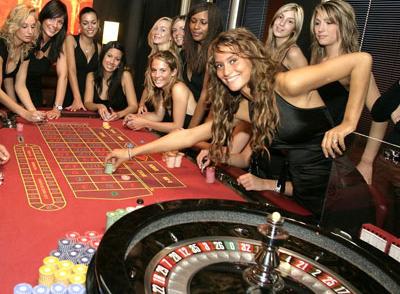|
While most people Casino, Paris sports, lotteries and bingo games for fun and excitement, fun and can other games such as the habit of dependence and distraction do. Statistics show that annually 85 percent of the adult population in the U.S., a kind of happiness between 2 and 3 percent of developing countries set a problem with gambling, and have 1 percent of them, as diagnosed pathological gamblers.
Where the boundary between the games is is safe for gambling? How can you tell if you or your friend is problem gamblers? Here are answers to these questions and more questions about gambling and problem gambling.
What's the point of playing?
Gambling or gambling is defined as an uncontrollable urge, despite the destructive effect of gambling on the lives of the players, and despite feelings of guilt and remorse Thurs gambling more of a negative effect on the players in the financial, relationships and everyday life. Severe cases of gambling addiction can be defined as pathological gambling.
Am I addicted?
1) Play, work to the last penny?
2) Play to win back your losses, or old debts?
3) Have you ever been money to borrow to continue playing?
4) The game has already done your habits you are to your friends or your family?
5) Do you ever skip work or other obligation to play?
6) They tend to play, to forget your personal problems or to celebrate happy occasions?
7) Has the game a negative impact on your life or relationships?
If you yes to any of the above questions, then you have a problem.
Can anyone be a compulsive gambler?
In theory, yes. Each player can develop gambling problems regardless of the type to play with him, how much money and time; he is so busy spending for the game. Research shows that the slot machines in restaurants and shops is easily the most exciting game as raffles and bingo games are at the other end of the scale. The game is an emotional problem, its symptoms, causes and treatment as any other form of addiction.
How do I deal with a gambling problem?
Therapy Group 1):
Gamblers Anonymous offers 12-step self-help similar-as the detoxification of alcoholics in Alcoholics Anonymous. Group therapy also offers advice for the players and the support of professional consultants and gaming enthusiasts more in various stages of their recovery. Gamblers Anonymous in over 1,200 locations throughout the state.
2) Individual therapy:
Cognitive behavioral therapy, or can identify problem gamblers replace their ignorance of thought and action, they play compulsively and led them through manageable and healthier ways of thinking support.
3) Psychotropic drugs:
It has recently been shown that antidepressants can the family of SSRI, selective serotonin reuptake inhibitors in the treatment of emotional player....
Where the boundary between the games is is safe for gambling? How can you tell if you or your friend is problem gamblers? Here are answers to these questions and more questions about gambling and problem gambling.
What's the point of playing?
Gambling or gambling is defined as an uncontrollable urge, despite the destructive effect of gambling on the lives of the players, and despite feelings of guilt and remorse Thurs gambling more of a negative effect on the players in the financial, relationships and everyday life. Severe cases of gambling addiction can be defined as pathological gambling.
Am I addicted?
1) Play, work to the last penny?
2) Play to win back your losses, or old debts?
3) Have you ever been money to borrow to continue playing?
4) The game has already done your habits you are to your friends or your family?
5) Do you ever skip work or other obligation to play?
6) They tend to play, to forget your personal problems or to celebrate happy occasions?
7) Has the game a negative impact on your life or relationships?
If you yes to any of the above questions, then you have a problem.
Can anyone be a compulsive gambler?
In theory, yes. Each player can develop gambling problems regardless of the type to play with him, how much money and time; he is so busy spending for the game. Research shows that the slot machines in restaurants and shops is easily the most exciting game as raffles and bingo games are at the other end of the scale. The game is an emotional problem, its symptoms, causes and treatment as any other form of addiction.
How do I deal with a gambling problem?
Therapy Group 1):
Gamblers Anonymous offers 12-step self-help similar-as the detoxification of alcoholics in Alcoholics Anonymous. Group therapy also offers advice for the players and the support of professional consultants and gaming enthusiasts more in various stages of their recovery. Gamblers Anonymous in over 1,200 locations throughout the state.
2) Individual therapy:
Cognitive behavioral therapy, or can identify problem gamblers replace their ignorance of thought and action, they play compulsively and led them through manageable and healthier ways of thinking support.
3) Psychotropic drugs:
It has recently been shown that antidepressants can the family of SSRI, selective serotonin reuptake inhibitors in the treatment of emotional player....
